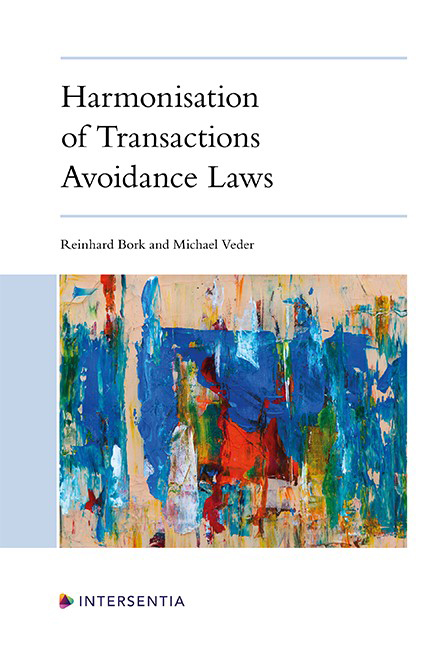Spain
Published online by Cambridge University Press: 26 May 2022
Summary
A. INSOLVENCY LAW OF SPAIN
In Spain, the rules on transactions avoidance are part of insolvency law. They are included in an autonomous chapter of the recently recast Insolvency Act (Chapter IV, Title IV, Book I, Art. 226 – 238 Insolvency Act (recast) or IAr). These rules apply interchangeably to natural and legal persons, including consumers, and both in liquidation and restructuring, but within formal insolvency proceedings (concurso). They do not apply to pre-insolvency (DIP) restructuring frameworks, i.e. restructuring agreements concluded outside formal insolvency proceedings.
The Spanish regime on transaction avoidance rules is relatively simple and straightforward. The Insolvency Act provides for a general clause and a list of presumptions.
The general clause covers all types of transactions: “[ … ] any act detrimental to the insolvency estate carried out by the debtor in the two years prior to the opening of the insolvency proceedings may be set aside, regardless of whether or not there has been fraudulent intent” (Art. 226 IAr). Case law usually refers to the concept of “unjustified economic sacrifice” to specify this general clause. And, in practice, this clause usually includes both preferences (an unjustified preference in favour of a creditor to the detriment of the pari passu principle) and transactions at an undervalue (an act of disposal below market value that entails an unjustified detriment to the insolvency estate).
This general clause is accompanied by a list of presumptions. The law distinguishes between iuris et de iure (i.e. non rebuttable) and iuris tantum (rebuttable) presumptions.
Art. 227 IAr establishes a “black list”, i.e. a list of absolute or non-rebuttable presumptions of prejudice. According to this provision, the detriment to the insolvency estate is presumed, without evidence to the contrary being admissible, as regards (i) acts of disposal without a consideration, except for usual liberalities; and (ii) payments or other acts of discharge of obligations the maturity of which was later than the declaration of the opening of the proceedings, except if they had an in rem security (in which case the terms set forth in the following paragraph shall apply).
- Type
- Chapter
- Information
- Harmonisation of Transactions Avoidance Laws , pp. 479 - 486Publisher: IntersentiaPrint publication year: 2022



